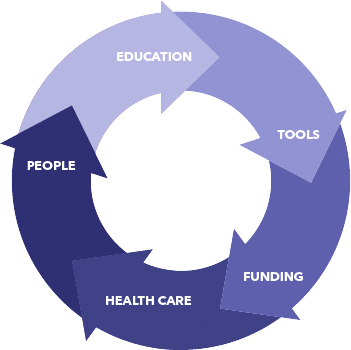
DOWNLOAD YOUR FREE “5 KEY MYSTERIES TO MEDICAID IN PA” EBOOK
"*" indicates required fields

ELDER LAW
What is elder law? This term covers a number of different legal and practical issues that affect the elderly, their caretakers, friends and family members. Some of the common issues involve, health care decisions, estate and financial planning, guardianship as well as end-of-life issues and elder abuse. While some of these issues can be anticipated and planned for, some are unexpected and sudden.
Life is Full of Change
What is the one thing you can always count on in life? The one thing that you know and accept is inevitable? Change. It is the only thing that remains consistent in life; jobs come and go, houses are bought and sold, funds are replenished and depleted, but the one thing all of these instances have in common is that they cause change. What happens when change brings the necessity for dealing with the financial and legal matters for a loved one? What happens when change brings the necessity of in home care or nursing home care? What happens when change brings the necessity to make health care decisions for a loved one? Our office seeks to make these stressful changes as easy as possible by assisting our clients in planning for the current situation and for the future for their financial needs as well as their health care and living needs.
Long Term Care Options
As our family members age, we start to confront elder law-related topics, either for our parents or ourselves. One of the most urgent concerns that comes with age is finding the right nursing home care for the long term, which traditional health insurance doesn’t cover. Without the help from health insurance, the cost of nursing home care is hard for family members to scrape together without depleting your loved one’s life savings, and no one wants to stick their beloved family members in a poor quality, low cost nursing home care option. Nursing home care can cost on the average $10,000 to $12,000 a month, depending on where you live. The majority of people end up paying for long term nursing home care until they are out of assets, and then turn to Medicaid to pay for the care. However, with some planning and acquired knowledge, the assets can be protected and benefits received earlier. This not only gives the family peace of mind that their loved one is taken care of, but also give the loved one assurance that his or her hard earned life savings will be passed to their family.
Medicare
It’s very common to hear the general public’s confusion about the differences between Medicare and Medicaid. However, while the names are similar and easy to confuse, their purposes and benefits are vastly different. Medicare is a federal health insurance program that is available for anyone over the age of 65 years old, with no financial requirements or regulations. Because this is a health insurance program, the coverage of nursing home care is very hard to qualify for, as with most traditional health insurance plans. With this program, the benefits come in “parts,” and there are three primary parts: Part A (hospital coverage), Part B (medical coverage), and Part D (prescription drug coverage).
Pennsylvania Medicaid
Medicaid is a Federal health care program most closely related to the welfare program. This program is funded mainly by the federal government but administered by the state. There are income and asset requirements that must be met to qualify, and each state has its own unique requirements. In Pennsylvania, this program is monitored and controlled by the Pennsylvania Department of Human Services. There is a long process which applicants must navigate to gain benefits from this program, but the end result is assurance that your loved ones are cared for. Our office attempts to make this process easier for the applicants by providing our clients knowledge of the available options, including whether Medicaid benefits are an option or not. While pre-planning is always best we can still assist if you find yourself in a crisis situation.
Our
Medicaid Process
Assignment of Paralegal
You will be assigned a Paralegal that will assist you in obtaining necessary information.
Submitting Documents
The Paralegal assigned to your matter will review the documents provide you with an updated MRIL with any documents and/or action that needs to take place.
Signing of the Medicaid Documents
A meeting will be scheduled with the assigned Paralegal to execute all necessary documents for approval.
Submitting Documents to the County
After the necessary documents are executed and the file is built, the Paralegal then submits the file for processing.
County Assistance Office Pending List
A review of all documents received will take place, and if any additional documents are needed, they will contact our office. Your Assigned Paralegal will reach out to you to obtain what is necessary for approval.
The Approval
Once all documents and information have been received, our office will be informed of the approval.
Your Paralegal Will Alert You of the Approval
Once we receive notification of the approval, we will send you a copy of the notice with a letter of explanation and what to expect going forward.
Red Wagon Club

Register for Our Free On-Demand Webinar
FOR ELDER LAW PLANNING
